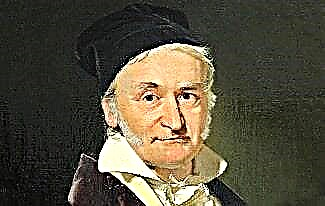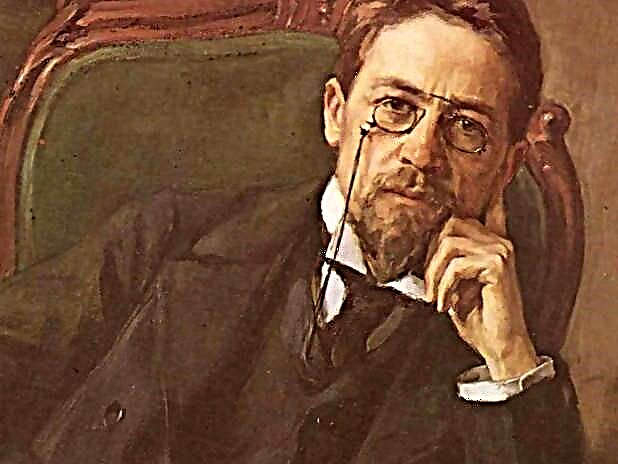Frederic Chopin, full name - Fryderyk Franciszek Chopin (1810-1849) - Polish composer and pianist of French-Polish origin. In his mature years he lived and worked in France.
One of the Key representatives of Western European musical romanticism, the founder of the Polish national school of composition. He had a significant impact on world music.

There are many interesting facts in Chopin's biography, which we will tell about in this article.
So, before you is a short biography of Fryderyk Chopin.
Chopin's biography
Fryderyk Chopin was born on March 1, 1810 in the Polish village of Zhelyazova Wola. He grew up and was brought up in an intelligent family.
His father, Nicolas Chopin, was a teacher of French and German. Mother, Tekla Justina Kshizhanovskaya, had an excellent education, played the piano well and had a beautiful voice.
Childhood and youth
In addition to Fryderyk, 3 more girls were born in the Chopin family - Ludwika, Isabella and Emilia. The boy began to show outstanding musical abilities in early childhood.
Like Mozart, the child was literally obsessed with music, with a penchant for improvisation and an innate pianism. While listening to this or that composition, Chopin could easily burst into tears. An interesting fact is that he often jumped out of his bed at night to record the melody he remembered.
Already at the age of 5, Fryderyk began giving concerts, and after 2 years he studied with the famous pianist Wojciech Zhivny. The student developed his musical skills so rapidly that by the age of 12 he became one of the best pianists in the country.
This led to the fact that Chopin's mentor refused to continue teaching the teenager, since he could no longer give him new knowledge. In addition to piano lessons, Fryderyk studied at the school. Upon graduation, he began attending theoretical classes with the composer Jozef Elsner.
Over time, the young man met Prince Anton Radziwill, who helped him find himself in high society. By the time of the biography, the virtuoso had already visited many European countries, and also visited the Russian Empire. It is curious that his performance impressed Alexander I so much that the emperor presented the young genius with a diamond ring.
Music and pedagogy
When Chopin was 19 years old, he began active touring in different cities and countries. But the very first European tour, which was organized the next year, turned out to be a parting with his beloved Warsaw.
Separation from the homeland will become the cause of Frederick's continuous hidden grief. In 1830, he learned about the uprising for the independence of Poland, in connection with which he wanted to take part in it. However, on the way, he was informed about the suppression of the riot, which greatly upset the musician.
As a result, Chopin settled in France. In memory of the struggle for independence, he wrote the 1st opus of etudes, including the famous Revolutionary Etude. Since that moment, the composer has never been to his homeland.

In France, Frederic often performed in the homes of aristocrats, rarely giving full concerts. He had many patrons and friends involved in art. He was friends with such outstanding musicians as Schumann, Mendelssohn, Liszt, Berlioz and Bellini.
Chopin has written many works for the piano. Impressed by the poetry of Adam Mickiewicz, he created 4 ballads, which he dedicated to his beloved Poland. In addition, he became the author of 2 concertos, 3 sonatas, 4 scherzos, as well as many nocturnes, etudes, mazurkas, polonaises and other piano works.
Fryderyk Chopin's biographers note that the waltz is the most intimate genre in his work. His waltzes reflected autobiographical feelings and joys.
The man was distinguished by consistency and isolation, as a result of which only those who are well familiar with the works of the composer can know his personality. One of the peaks of his work is considered to be a cycle consisting of 24 preludes. It was created at the time of the biography, when the virtuoso first experienced love and parting.
After gaining worldwide recognition, Fryderyk became interested in teaching piano. An interesting fact is that he became the author of a unique pianistic system that helped many pianists to reach great heights in music.
It is worth noting that among his students there were many girls from high society. However, the most famous of his charges was Adolf Gutmann, who later became a great pianist and music editor.
Personal life
In the composer's personal life, not everything was as good as in his creative biography. His first lover was Maria Wodzińska. After the engagement, Maria's parents insisted that the wedding be played only a year later. Thus, Chopin's father-in-law and mother-in-law wanted to be convinced of the material well-being of his son-in-law.
As a result, Frederick did not meet their expectations, and the engagement was terminated. The guy went through a very hard parting with his beloved, expressing his pain in several works. In particular, it was then that the 2nd Sonata was created, the slow movement of which was called "Funeral March".

Soon, Chopin began an affair with Aurora Dupin, better known under the pseudonym Georges Sand. She was a supporter of nascent feminism. The girl did not hesitate to dress in men's suits and preferred an open relationship with the opposite sex.
For a long time, young people hid their relationship from the public. Basically, they spent time in the private house of their beloved in Mallorca. It was there that Frederick began an illness that became the cause of his sudden death.
The humid island climate and frequent quarrels with Aurora provoked tuberculosis in Chopin. The man's contemporaries claimed that the domineering girl had a significant influence on the weak-willed musician.
Death
A ten-year cohabitation with Dupin, full of moral tests, had an extremely negative impact on the state of Frederick's health. Moreover, parting with her in 1847 caused him serious stress. The following year, he gave his last concert in London, after which he fell ill and never got up.
Fryderyk Chopin died on October 5 (17), 1849 at the age of 39. The cause of his death was progressive tuberculosis. According to the last will of the musician, his heart was taken home, and his body was buried in the famous Parisian cemetery Pere Lachaise. The goblet with a heart is now kept in one of the Warsaw churches.
Chopin Photos





















